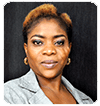Differentiation, divergence, variety all speak to diversity. It is important to understand that the universe itself thrives on diversity and inclusion.
“Diversity is about all of us and about us having to figure out how to walk through this world together.” ~Jacqueline Woodson
An organisation’s primary focus is on building and maintaining a workforce capable of achieving its objectives, so it is not surprising that for HR Practitioners, the business case for diversity in the workplace is becoming greater while the conversations are getting louder. Simply put, we need people regardless of gender, race, or religion to move an organisation to the next level. This is because people are an organisation’s greatest asset and diversity brings together different individual perspectives and experiences in decision making and problem-solving in the workplace. With diversity comes the element of inclusion; everyone is important and equal.
Diversity in an organisation also impacts the people outside the organisation (the organisation’s brand and reputation) and the work environment. For example, it allows an organisation to understand better the need of a wide range of customers by first embracing, understanding, and managing individuals with varying degrees of differences within the organisation.
While concerns may be expressed around specific types of people required for some functions, the danger is in Managers wanting to pigeonhole individuals and not embrace variety in their team. HR must clarify that promoting diversity does not decimate business goals; rather, it supports achieving an organisation’s goal using individuals of diverse backgrounds, skillset, and exposure. It also increases creativity as it brings different perspectives to the discussion table, and the quality of decisions made contribute to an organisation’s competitive edge in the market.
For the 21st-century businesses environment, diversity is beyond race, gender, or ethnicity. It now includes education, cultures, political beliefs, social orientation. When it comes to decision-making, diversity has proven to yield more ideas, generate more views, and discuss perspectives and insights that would otherwise have been ignored. In addition, teams and organisations benefit more from a rich mix of people because people are different externally as they are in their ‘wiring’: personality and work style.
However, diversity comes with its challenges. Hence, HR needs to work with the right strategy to manage diversity and ensure inclusion at all levels properly. Even though Business leaders have become more deliberate in their approach to diversity management, below are some of the ways organisations are responding to Diversity Management:
1. Talent Acquisition:
Organisations are consciously infusing diversity into the hiring process of employees. Diversity is also sustained by providing an inclusive environment that promotes equality and enables workers to learn from one another.
2. Policy Documents:
There has been an increased need for equality and diversity policies to be put in place and backed up with action and sanctions. These policies address fairness, respect, harassment and protect minority groups, amongst other things.
3. Creative Communication:
While business leaders and HR professionals continue to promote and implement work cultures that encourage diversity, there is a risk of communication barriers. Developing creative ways of communication can help to overcome cultural and semantic barriers.
For instance, people allude to different meanings to various verbal and non-verbal signals based on their background and, unless these can be communicated and understood, communication can go wrong. Therefore, creative ways of facilitating effective communication must be encouraged.
4. Diversity training/workshops:
These workshops can help build a greater understanding of individual differences and stimulate self-awareness of preconceived opinions and biases. The aim is for individuals to understand their uniqueness, similarities, differences and biases and work around them to achieve set objectives and goals in the workplace.
Diversity is a major driver for the opinions of all members of a workforce to be respected. From our experience as pcl. working with organisations across sectors, we are discovering that based on the global impact of Covid-19, organisations are no longer restricted in the people aspect of the business. Some of our clients have aligned their processes and policy to ensure they attract and retain talents that will contribute their versatility to the growth of the business. In building great institutions, pcl. continues to support our clients in ensuring HR aligns with business strategy and that best practice in effective diversity management is implement for great results.
“Our ability to reach unity in diversity will be the beauty and the test of our civilisation.” ~Mahatma Gandhi
Written by:

Esther Amoye
Senior Consultant
